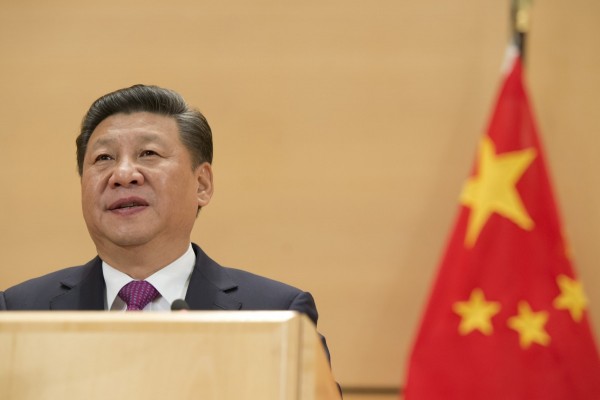Where does the NDP really stand on NATO?
Pushing to expand the alliance in a way that could put Canada on a war footing with Russia is reckless

Prime Minister Justin Trudeau at a NATO Heads of State and Government summit in Warsaw, Poland, July 8, 2016. Photo courtesy the Prime Minister’s Office.
Does the NDP want Canada to ratchet up tensions with Russia? Unfortunately, this seems to be the notion at the heart of a recent statement by the party’s Deputy Foreign Affairs Critic Heather McPherson.
In an interview with Ukrainian-Canadian media outlet New Pathway, McPherson said the Canadian government ought to promote Ukraine’s membership in the North Atlantic Treaty Organization, and that Ottawa should expand its military presence in the Eastern European nation.
Asked whether the NDP would “support Ukraine’s bid to join the MAP [Membership Action Plan] program and advocate for this with our NATO allies” and “expand both the scope of Operation UNIFIER and number of CAF [Canadian armed forces] personnel within the program,” McPherson responded:
The NDP will continue to strongly support Ukraine’s bid to join the MAP program and we have and will continue to push the government to advocate for this with our NATO allies. That Prime Minister Trudeau and [Foreign Affairs] Minister [Marc] Garneau have been unwilling to explicitly state their support for Ukraine’s bid and their failure to adequately support the bid via advocacy efforts and multi-lateral diplomacy is very disturbing.
Further, the NDP would expand both the scope of Operation UNIFIER and number of CAF personnel within the program. In December 2018, the NDP called for an extension of operation UNIFIER after an unprecedented act of aggression by Russia which seized three Ukrainian ships and their 20 crew members off the coast of Crimea. As you know, in March 2019 the operation was renewed. The support needs to be renewed and increased to acknowledge recent increased aggression by Russia.
McPherson’s position is highly provocative. As part of Operation UNIFIER, 200 Canadian troops provide “security force training” to a Ukrainian army that has integrated far-right militias who use the Nazi “Wolfsangel” symbol and praise figures who helped slaughter Jews and Poles during the Second World War.
When extending the mission in 2018, the Trudeau government eased restrictions that required Canadians soldiers to stay in the western half of Ukraine, away from the fighting in the east that has left over 13,000 dead since 2014.
Canadian troops also lead a NATO mission in another nation bordering Russia. Alongside 550 Canadian personnel in Latvia, Canadian naval vessels have recently patrolled in the Baltic Sea and Canadian fighter jets have been stationed in Romania.
The amassing of NATO troops on Russia’s border is considered by many foreign policy experts and diplomats to be highly belligerent. It also violates a US, German and French promise to Soviet-Russian leader Mikhail Gorbachev regarding the reunification of Germany, an important Cold War divide.
In 1990, Gorbachev agreed not to obstruct German reunification, to withdraw tens of thousands of troops from the east and for the new Germany to be part of NATO in return for assurances that the alliance would not expand “one inch eastward.” Now, the alliance includes countries on Russia’s border and North American troops are stationed there.
Officially, NATO operates on the idea that an attack against one member is an attack against all members (as enshrined in Article 5 of the North Atlantic Treaty). The government in Kyiv claims Russia is backing a secessionist movement in the largely Russian-speaking east of the country and illegally occupying Crimea—as such, granting Ukraine NATO membership would put the alliance on a war footing with Russia.
Fortunately, there’s been pushback to McPherson’s position. After retweeting a Canadian Foreign Policy Institute message critiquing the NDP’s position, the party’s former foreign affairs critic Svend Robinson wrote: “[The] NDP should be calling on Canada to withdraw from this discredited Cold War NATO alliance and redirect arms expenditures into fighting real enemies of climate emergency and obscene inequality in Canada and globally.”
@NDP should be calling on Canada to withdraw from this discredited Cold War NATO alliance and redirect arms expenditures into fighting real enemies of climate emergency and obscene inequality in Canada and globally. #cdnpoli #CanadaOutOfNATO https://t.co/gvmpl5QIKP
— Svend Robinson (@SvendJRobinson) April 15, 2021
Employing more strident language, Rabble blogger David Climenhaga added: “What is it about Canadian progressives that they have to prove they can be warmongering lunatics too? NATO has no business camped on Russia’s doorstep—it’s bad tactics AND bad strategy. What is the Canadian Greens position on this? I may have to change my vote.” Hoping to stir up dissent within NDP ranks, Green MP Elizabeth May retweeted Robinson’s criticism.
My guess is that Climenhaga and Robinson’s position is closer to that of most NDP activists, members and even voters. A resolution calling on the NDP to “actively campaign to get Canada out of NATO” and “remove the NATO nuclear ring around Russian borders” was submitted by two riding associations to the party’s recent convention (it was never debated).
At a time when NATO had at least a nominal Cold War justification, NDP members voted to leave the organization. After years of internal debate over the alliance, party members called on Ottawa to withdraw from NATO in 1969. But the position was partially reversed by the NDP leadership in the mid-1980s, culminating in a 1987 “security” policy paper that equivocated on the subject.
Whether or not one believes Canada should withdraw from NATO, pushing to expand the alliance in a way that could put Canada on a war footing with Russia is reckless.
Yves Engler has been dubbed “one of the most important voices on the Canadian Left today” (Briarpatch), “in the mould of I.F. Stone” (Globe and Mail), and “part of that rare but growing group of social critics unafraid to confront Canada’s self-satisfied myths” (Quill & Quire). He has published nine books.










